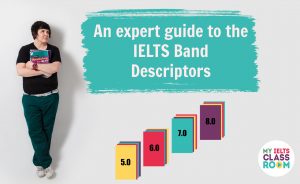
6 IELTS lexical errors you probably make if you are Indian, Pakistani, or Bangladeshi!
Hey! Here at My IELTS Classroom, we work with students from all over the world. In fact, one of my favourite things is keeping a list of all of the countries that our students come from. There are well over 100 now, which is absolutely mind-blowing! The great thing about working with such a wide-range of test-takers is that you start to see patterns in the mistakes that they make as a result of the influence of their first language.
So, today, we are launching a new series of blog posts that focus on one region and their specific language errors. In this first post, we are going to look at the lexical errors made by our students who come from India, Pakistan, and Bangladesh. In particular, I want to go through the six words and phrases that I see used incorrectly time and time again. What are they? Let’s find out!
Problem Phrase 1: indulge
What you think it means: to be involved in something
What it actually means: to allow yourself to enjoy the pleasure of something
In English, “indulge” means to treat yourself to something special (often something that is seen as luxurious or “naughty” in some way). For example,
- I indulged by eating two pieces of chocolate cake.✅
- I indulged and treated myself to a massage.✅
However, my students often write sentences like this:
In conclusion, embracing a more balanced approach to life could solve the problem of people not being indulged in physical activities. ❌❌❌🙅♂️🙅♂️
The point is that when we use “indulge” we are REWARDING ourselves. However, when people go to the gym, they are not “indulging” themselves – most people I know see the gym as a type of punishment, not a reward!!!! What the student wanted to say here is that they “get involved in” in physical activities i.e. simply that they participate in them.
- In conclusion, embracing a more balanced approach to life could solve the problem of people not being involved in physical activities.✅✅✅ 👏👏👏
Can you see the difference? Have a look at these sentences and see if you can choose the right word. The answers are in the comments at the bottom of the page👇👇👇:
- A number of people become indulged/involved in drugs because they are unemployed.
- There is nothing wrong with indulging/involving yourself at a party once in a while.
- I decided to indulge / involve and buy the top of the range smart phone.
- People who live in cities are rarely indulged / involved in activities in their local community.
Problem Phrase 2: literacy rate
What you think it means: the number of people who have a degree or higher education
What it actually means: the number of people who can read or write
In our academic report writing course, we have a chart that shows the educational levels in a European town. All of the residents either have a university degree, a school certificate, or no certificate at all. In other words, this is a question about qualifications. However, many of my Indian, Pakistani, and Bangladeshi students often write sentences like this:
- The literacy rate of young people is much higher than older people ❌❌❌🙅♂️🙅♂️
This is simply wrong as we don’t know anything about literacy rates from the chart. “Literacy” simply means that people can read and write. In the UK, it is quite common for people to leave school with no qualifications, but extremely rare for people to leave without being able to read. I see the same problem with answers to this essay question:
A university education should be free for all students.
To what extent do you agree or disagree?
Many students tell me that literacy rates will rise if people can get a free higher education. Clearly, what the student is trying to say is that the number of highly qualified people will increase (which is true) but what they are telling is that the number of people who can read will rise (which is definitely not true!)
Discover the secret to writing a Band 7.0+ essay
Then download a copy of our FREE e-book, which explains the most common errors made by test-takers and how you can avoid them. Just click here for your copy.

Problem Phrase 3: to groom
What you think it means: to bring up a child with good manners
What it actually means: to become friends with a child with the intention of trying to persuade the child to have a sexual relationship!
OK, this is not an easy or nice word to talk about, but sadly so many of my students use it in their essays, that we really have to address this issue. I think I understand where this mis-use comes from. You see, we have an adjective “well-groomed”, which means to have a neat, pleasant appearance that is produced with care. We also use the verb “groom” to talk about brushing horses to make them look pretty. Therefore, I can see, why students might want to use the word to describe the way that children are looked after by their parents.
However, thanks to the Internet, we now have a very different and specific use of this verb. Sadly, some adults make friends with children online and try to manipulate them into a sexual relationship. Although this is a new use of the word, it is the one most common used, so any mention of “groom” and “children” in the same sentence and this is what enters a native speaker’s head. So, next time you want to use the word “groom”, you should use “bring up” or “raise” instead:
- Parents should groom their children to be considerate of the noise they make in public places. ❌❌❌🙅♂️🙅♂️
- Parents should raise their children to be considerate of the noise they make in public places. ✅
- Parents should bring up their children to be considerate of the noise they make in public places. ✅
Problem Phrase 4: the masses
What you think it means: the general public
What it actually means: the common people of a society who are not rich
Now, this difference may appear to be small. I mean, if “the masses” means “common people” then why can’t it be used instead of “people”? Well, the problem is that this word has a negative connotation. What does that mean? It means that some words are seen as positive and some are seen as negative, even though they have the same basic meaning.
For example, “slim” and “skinny” both have the same dictionary definition as “thin” but in English, it is a compliment to describe a woman as “slim” but an insult to say that she is “skinny” (and don’t even get me started on why these words are almost always used to describe women and not men!)
In the same way, the phrase “general public” is neutral (neither good or bad) but “the masses” is very negative. Essentially, it means that you are not rich or famous enough to be important i.e. I can take my private jet, but the masses can take public transport!
- The masses are stressed these days ❌❌❌🙅♂️🙅♂️
- Most members of the public are stressed these days. ✅
- Most people are stressed these days.
Maybe you can’t “feel” the difference between these words – that’s OK, just remember not to use “the masses”!
Problem Phrase 5: to shift house
What you think it means: to move house
What it actually means: Nothing!
In General Training Writing Task One, it is quite common to be asked to write a letter about moving house. Usually, it is either a letter to offer help to a friend who is moving, or a letter to invite a friend to see your new home. Either way, you will definitely need to talk about “moving house”. Unfortunately, as many students from these regions have a phobia about using words directly from the task (which is totally fine!!!), they paraphrase “move home” to “shift home” like this:
- I am shifting home this weekend ❌❌❌🙅♂️🙅♂️
Now, there are some circumstances in which “shift” and “move” are direct synonyms (for example, when my cat is sitting on my office chair, I often tell her to “shift” or “move”. However, in terms of house removals, you can either “move house” (i.e. relocate) or you can “shift / move the things inside your house” (i.e. move specific items) but you can never “shift house”. Look at these sentences and decide which are correct and which are not correct:
- I’m shifting next week.
- I heard that you are moving next week.
- Can you help me to shift my sofa?
- I need to move my wardrobe, but it is too heavy for me to do alone. Can you help?
Problem Phrase 6: young ones
What you think it means: Children
What it actually means: Nothing!
OK, this is a bit of a joke, but it is true that no native speaker would every refer to children in general as “young ones” or “young minds”, and there is a very old English comedy called The Young Ones, so every time that I read this expression, this is the image that I get in my head.

The simple truth is that there really aren’t any good synonyms for children unless you can use “pupils” (to refer to schoolchildren) or “offspring” (to refer to particular children or parents i.e. Parents should raise their offspring to be polite and considerate). 99% of the time it is better just to use the word children and referencing!
Oh, and as a bonus, young people do not have “tender minds” – this makes it sound like you are going to eat them (like they are “tender meat!)!! There is an expression “tender age” that we use to talk about the stage in a child’s development when they are particularly vulnerable, but honestly, I would avoid this expression altogether!
